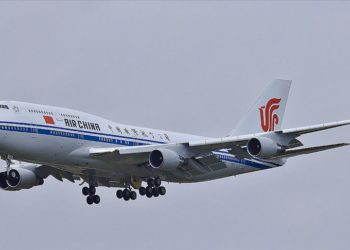 American Airlines Inc., the world’s second-largest carrier, is in discussions with Japan Airlines Corp. about strengthening their long-standing relationship as JAL seeks partners to help with its current financial problems.
American Airlines Inc., the world’s second-largest carrier, is in discussions with Japan Airlines Corp. about strengthening their long-standing relationship as JAL seeks partners to help with its current financial problems.
American may buy equity in JAL and would like to expand its code-sharing agreement with the airline, said people familiar with the plan who asked not to be identified because the discussions aren’t public.
An American spokesman confirmed late Saturday that “we are in discussions with JAL,” but declined to comment further.
A JAL spokeswoman in Tokyo said the airline is talking with other carriers to strengthen its business, but declined to comment further.
Reports from Japan say JAL seeks investments of 250 billion yen ($2.8 billion) as it deals with losses and falling demand for international travel.
Japan Airlines, which was privatized by the government in 1987, is in the midst of a major restructuring. It has received three government bailouts since 2001, with the most recent in June. The airline posted its biggest quarterly loss of 99 billion yen ($1 billion) for the April-June period and has forecast a net loss of 63 billion yen (about $700 million) for its current fiscal year, which ends in March.
Japan Airlines also is in talks with Delta Air Lines Inc. and Air France-KLM, people familiar with those negotiations have said.
The Wall Street Journal reported Saturday that American has been talking with JAL for more than a month on a “far-reaching” joint venture.
American could invest about 50 million yen ($550 million) in JAL, said Yasuhiro Matsumoto, an analyst at Shinsei Securities Co. in Tokyo.
“I don’t think the Japanese government cares who gives JAL the money,” Matsumoto said. “JAL would probably rather get money from American since they’re in the same group.”
American and JAL are both members of Oneworld, a global airline alliance that includes carriers such as British Airways PLC, Iberia, Cathay Pacific Airways Ltd., Finnair and Qantas Airways Ltd. Since 1995, American and Japan Airlines have allowed their customers access to each other’s frequent flier programs and have put their codes on the other’s flights on some routes.
Delta’s global alliance has no Japanese partner. However, Delta picked up Northwest Airlines Inc.’s extensive trans-Pacific network and its Tokyo hub in a 2008 merger.
One drawback to a large financial investment from U.S. carriers, particularly American and United Airlines, is that they’re dealing with their own issues of losses, liquidity and access to capital markets. Industry analysts have warned that a number of U.S. carriers face running low on cash this winter, though such concerns have eased somewhat in the past month with evidence that business travel may be picking up.
And Delta’s strong position on Pacific routes could raise concerns from antitrust enforcers if they think a tie between Delta and the leading Japanese carriers to the United States would hurt competition.
U.S. and Japanese negotiators have held talks about an “open skies” treaty to allow more service and competition between the two countries. A treaty likely would permit the governments to grant antitrust immunity so the airlines could work more closely, such as to jointly set prices, establish schedules and market flights.
American has a pending application for such immunity with its Oneworld partners across the Atlantic, including British Airways and Iberia.














